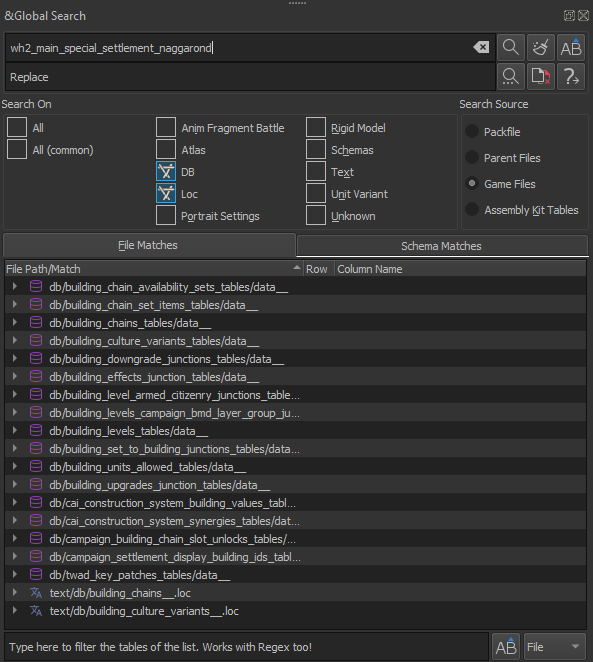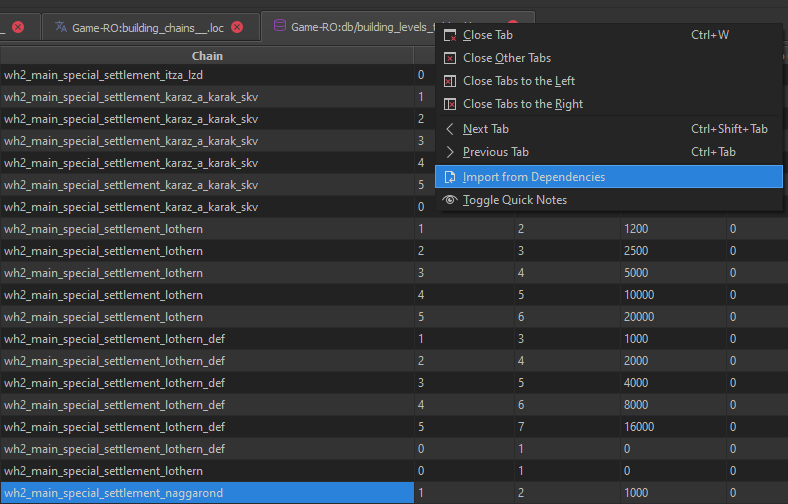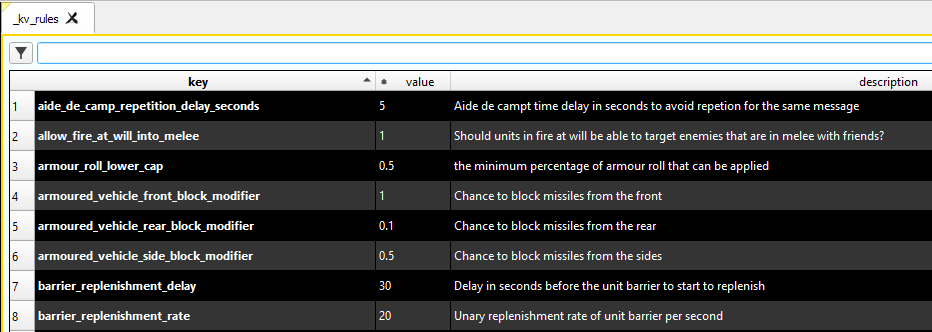Tutorial:RPFM Post-Setup for Beginners
Hi, my name's Casualfield, welcome to the Total War Modding community! In this shortish tutorial, I will show you a few settings in RPFM to improve the experience of modding and allow you to start learning. I'm going to assume you've already read the Tutorial:Beginner's Guide and Tutorial:RPFM For Dummies.
Dependencies
I always have the dependencies viewable as you can search it independently of Global Search and also import files from it directly into your packfile. This also ensures that dependencies are set up and RPFM is able to run diagnostics. Beware not every table is able to detect empty keys which will cause a CTD, if you find these please report them in the discord so MR. Fro can fix them for everyone.
You can adding other mods as a dependency!
Right click the main packfile and open Dependencies manager. ctrl + shft + a to insert a new row and type in the pack file EXACTLY as it's named, including the file extension(.pack). This makes it easy to make sub mods or mods with dependencies and allows RPFM to run diagnostics.
Tooltips
While in RPFM you can hover your cursor over column names or various things to get info on where things connect. This is the main way to learn how stuff actually works and connects.
Global Search
Now it's up to you if you always want this to be shown or not, but you WILL be using it. CTRL + SHIFT + F. An idea pops into your head for a mod but you have no idea how go about it? Well, start here. Now my personal recommendation is always start referencing base game and reverse engineering it. If there is text in game or text associated with something you can search for it if you have "loc" checked. Inside that .loc file there will be a multi part key that you can then search for which will lead to more things.
The "loc" setting will search .loc files, text will search things like .lua scripts, meshdefinitions and DB searches database files. So you can toggle stuff off if you want to lessen the search time, amount of results or to avoid causing RPFM to crash by searching to much.
Example of a multi part key "building_chains_chain_tooltip_wh2_main_special_settlement_naggarond". "building_chains_chain" "_tooltip_" & "wh2_main_special_settlement_naggarond" are separate parts, the latter being what you'd want to search for.
Importing and Shortcut Keys
Now, assuming you have created your packfile already, right click the tab at the top and import from dependencies. This will import the whole file into your packfile. Just rename the file to we don't mess with vanilla entries (ctrl + r once highlighted). You can highlight all the entire rows with copy them with ctrl + c and ctrl + shft + v to paste the rows back in. Ctrl + A will make a new empty row. You can check and or change the keybinds in RPFM settings.
DaVE: Database Visual Editor
Dave can be opened from the assembly kit. He will offer more insight into what certain keys do but not always, sometimes he's just as vague as the key itself...





